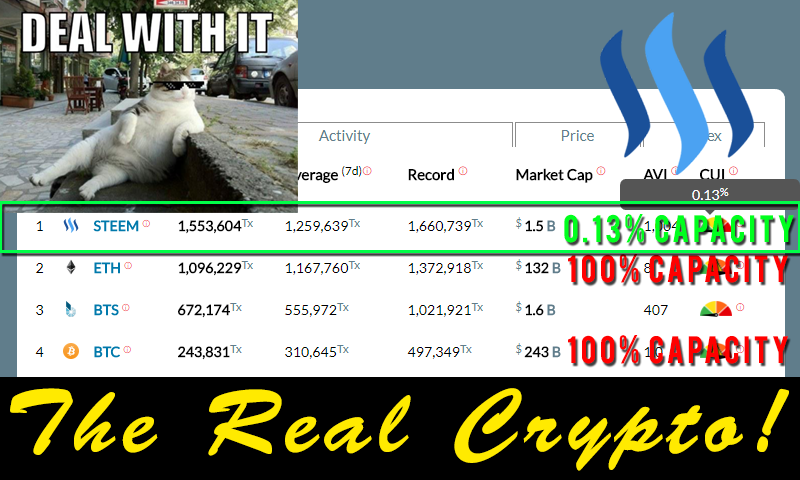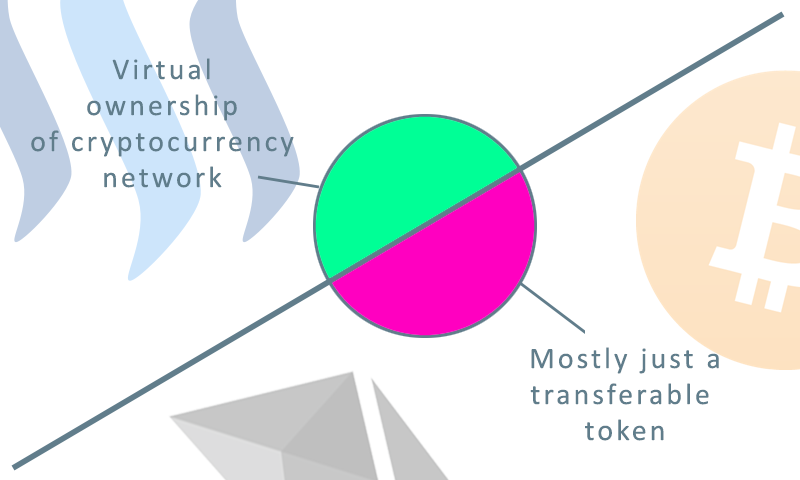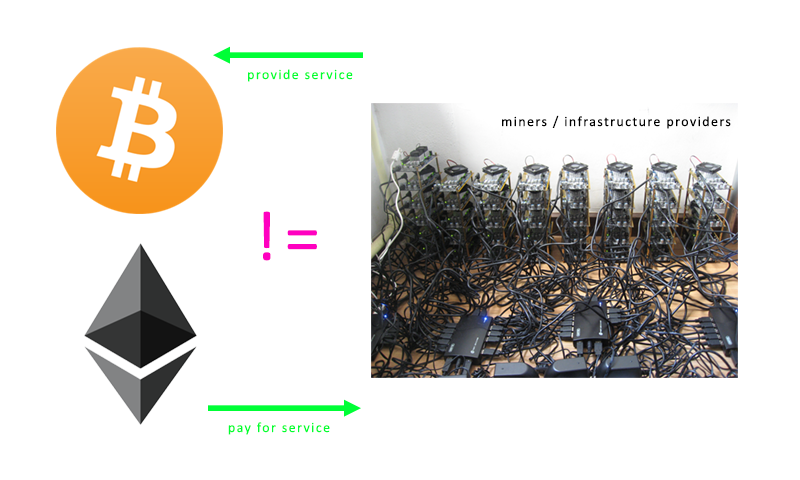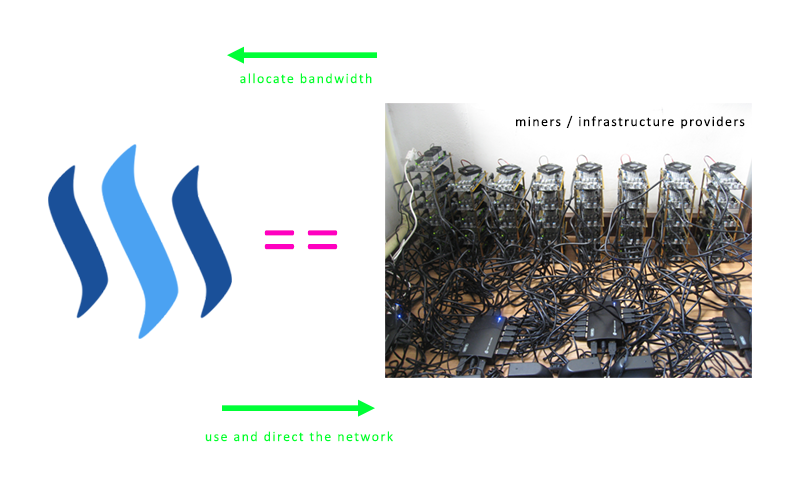
Blasphemy?
Completely out of my mind?
Sorry for the clickbait and dank image above, but it might be truer than you'd expect. Maybe not. But if you're interested, let's continue with my rambling.
After thinking about the subject for 20 months, I think I'm now convinced that Steem is one of the most well-conceived cryptocurrencies in the market. The realest of them all. So real that I'm ready to call it the real crypto now. The best part about it is that it's been a product of many lessons and iterations.
"It's just more likely that best solutions like this only come after several attempts in the industry. If you think Bitcoin, the first ever crypto is the holy grail of cryptos, think again."
by random guy on the street who knows mathematical probabilities.
Think about Bitcoin and all of the other cryptocurrencies out there. They've all failed to realise one thing in their designs for "true" decentralisation. Network membership, ownership, stakeholdership, stewardship - however you want to call it. It took time, experience, and plenty of tinkering for something like Steem to come into existence.
Steem: the definitive cryptocurrency?

Cryptocurrencies are here to decentralise control, spreading power into the hands of many while maintaining ledger security. So far, the coins have done well being distributed ledger technologies, but they have all missed the opportunity to incorporate the concept of "network ownership". What do I mean by this? Steem Power is a great example. Here is its true nature (at time of writing):-
It represents "real" ownership. Why? Next point.
It's a truly "fair" currency. Owning 1% of all Steem Power now provides you access into 1% of the network (base-profit, allocated bandwidth, voting rights). Also, I personally think the Equality hardfork is a great move to position the protocol for universality.
I'm saying "fair" like it matters because it really does. In such a new market, I think the Steem protocol shouldn't penalise ignorance. The n^2 controls could definitely perform better in improving order and minimising exploits (debatable), but I think we should leave that standard for communities that require stricter, elite-management. For a massively borderless, open-community like Steem, linearity and equality in distribution of network ownership doesn't seem to be the worst idea ever. Centrality encouraged by n^2 (or non-linear) controls should be reserved for more specific communities as "dictatorships" with better control do a better job at shaping culture / value.
"Real" cryptocurrencies shouldn't seek rent from their owners. Well, it can be defined to be that way, but that just doesn't seem to make any sense. You are supposed to own your cryptocurrencies, which includes owning part of the network. Ownership here is represented by your free use of the allocated bandwidth / rights for transactions and determining the continuous rewards allocation for personal / network growth.
Maybe someone has a better way of putting this, but so far this is the best I can express after so many months. Own your crypto!
What about EOS?
Why not both? Both Steem and EOS are pretty good bets with their own magic, rooted in the same spell. Two major communities (if EOS manages to launch in the future) with the very first network-ownership tokens. The very first batch of "real" cryptocurrencies, in my opinion. Whether or not if they have frequent and common over-lapping functionalities in the future, I think plenty of users will be on both platforms anyway. Both have different core developers and teams that are in my opinion, equally capable.
What about Bitcoin and Ethereum?

To be fair, both of these protocols can essentially provide "owners" with free transactions as well. But it's not part of their design. You need to run a node and be part of the infrastructure, earning rewards for doing so. These rewards can subsidise or render your transactions free in that sense. However, it's simply not part of Bitcoin / Ethereum's design to provide token-owners with free transactions. You don't actually own any part of the Bitcoin / Ethereum network through acquiring their tokens.
You could say there's a distinction between owners (actual infrastructure owners) and customers (everyone) in the likes of Bitcoin / Ethereum. Their tokens are not based on a "network ownership" model, which is why the actual owners (miners) earn when you want to transact on their network. On Steem, this distinction is blurred. By vesting into Steem Power, anyone can become co-owners of the network like everybody else, defined well enough by the protocol. Bandwidth is a pretty good representation of "actual infrastructure owners" / "miners". So when you're powering up, know that you're becoming a part of the network. It lends a great deal to decentralisation (access isn't concentrated to actual infrastructure owners / miners). Steem Power is like a virtual mining rig in itself.
One reason why Bitcoin / Ethereum can't have network ownership models represented in their tokens: high-overhead cost of running the infrastructures, hence fees need to be collected by the owners. Coupled with low-bandwidth capacity or throughput, the ownership-model would be made ineffective because there'll be a higher chance that transaction-queuing / prioritisation needs to be part of the design. In my opinion, the transaction fee in Bitcoin / Ethereum is simply the cost of paying for a highly secure ledger (with many redundancies). Its degree of security and decentralisation is debatable when it comes to cost vs performance. So far Steem's transactions seem to be as secure as my experience on Bitcoin / Ethereum, if not more satisfying. Are there any double spends happening? Not that I know of.
So how about Ethereum's future transition into Casper's Proof-of-Stake? Still not based on network-ownership model. I'm not a great expert in the technicalities, but I don't think most cryptocurrencies out there are built with an ownership-centric foundation, which means they can never have this in-built property of bandwidth-allocation in their tokens. You'd need to use the earnings from staking to subsidise / cover the cost of your future transactions instead. A cryptocurrency like that just feels incomplete to me these days.
The vision and value of Steem

It's in your hands as a Steem Power holder. You have an allocated bandwidth to use the network for free access to access transactions / plaintext storage / network effects. Let's say X (not part of the Steem network) wants a quick transaction sending $500.00 to Z. A matured Steem network in the future will enable you to locate a trusted account Y that can augment the service (of sending $500.00 to Z), establish a trade connection, and do the transfer for free to Y while charging X with transaction fees for using your service. Steem's decentralised exchange will make this fairly convenient and affordable. Steem Power enables frictionless ecosystems to be built between all token-owners.
But that's just one small random example of how entrepreneurs can use their Steem Power to generate revenue. We're already seeing delegation rentals and vote-trading as the rudimentary beginnings of an economy surrounding the cryptocurrency itself (not just the miners / infrastructure providers). Pretty sure we'll see something more sophisticated like the case with Bitcoin / Ethereum as the years roll by.
Growing content, traffic, curation, and social networks are valuable and that's what we're all attempting to contribute being Steem Power holders as well, by the way. What will you do with your bandwidth in the future?

Take a deep breath.
Conclusion
I think there's a case to be made for Steem's "network ownership" model. Its vesting scheme (Steem Power) is one-of-a-kind in the market and could prove itself to be a defining protocol. In fact, I think it's a very basic layer that should be present in all cryptos out there. Owning a currency / organisation means owning part of the information bank, bandwidth, and operations (every possible virtual representation of networks). Owning a cryptocurrency should mean having access to the following:-
- Free information storage (plaintext)
- Free transactions (according to allocated bandwidth)
- Operations (capital distribution / stewardship)
- Extended functionalities.
All the other fancy stuff like smart contracts and "better security" will be the purpose of every other cryptos out there. EOS is considerably more heavy-weight in infrastructure as the storage expands beyond plaintext, covering more grounds for operating different kinds of decentralised applications. Regardless of its future potential, I remain convinced now that Steem Power is an actual fundamental breakthrough in design. It's the real crypto and a step into the right direction.
Maybe I've managed to make it all seem more convoluted and complicated now, but whatever.. what do you think? Are there any other coins that have the similar basic functions that closely resemble this "network ownership" model like Steem Power? Is it an important innovation?
Now whenever I look at the World Economic Forum's whitepaper on Realizing the Potential of Blockchain: A Multistakeholder Approach to the Stewardship of Blockchain and Cryptocurrencies, I feel like they've completely missed the point of "Stakeholdership / Stewardship" represented in the heart of cryptocurrencies. Steem Power captures this essence well, in my opinion.
I think any of the upcoming coins that try to replicate this with more sophisticated designs might just end up broken with all the wrong assumptions. We all know user behaviour is a different beast and can't be managed all that easily, as we can see on Steem. This Ars Technica video sums it up pretty well for me.

